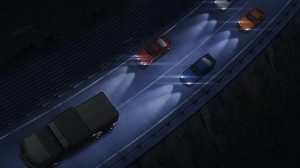 As Shounen Jump films go, I’d have to say Heroes: Rising ranks among the better of them. I quite enjoyed Futari no Hero as well – especially the All Might backstory – but as a whole this movie hangs together a little better. It also seems more relevant to the series mythology (more on that in a minute). Maybe that shouldn’t matter as much as it does, but it does matter a lot where these things are concerned. It’s about more than just feeling your time and money was well-spent – it also requires a lot less adjustment on the part of the audience.
As Shounen Jump films go, I’d have to say Heroes: Rising ranks among the better of them. I quite enjoyed Futari no Hero as well – especially the All Might backstory – but as a whole this movie hangs together a little better. It also seems more relevant to the series mythology (more on that in a minute). Maybe that shouldn’t matter as much as it does, but it does matter a lot where these things are concerned. It’s about more than just feeling your time and money was well-spent – it also requires a lot less adjustment on the part of the audience.
 It’s notable with Boku no Hero Academia that Horikoshi-sensei seems to consider the films (and indeed all anime-original material) to be an adopted part of the series mythology. That reflects the clearly very strong relationship he has with Bones, for starters. Horikoshi was quite closely involved with the scenario for both movies, which were written by the excellent Kuroda Yousuke (who’s handled scripts for all four TV seasons and both films) and directed by Nagasaki Kenji. He was in-charge of all those as well, before handing off the fourth season to concentrate on Heroes: Rising.
It’s notable with Boku no Hero Academia that Horikoshi-sensei seems to consider the films (and indeed all anime-original material) to be an adopted part of the series mythology. That reflects the clearly very strong relationship he has with Bones, for starters. Horikoshi was quite closely involved with the scenario for both movies, which were written by the excellent Kuroda Yousuke (who’s handled scripts for all four TV seasons and both films) and directed by Nagasaki Kenji. He was in-charge of all those as well, before handing off the fourth season to concentrate on Heroes: Rising.
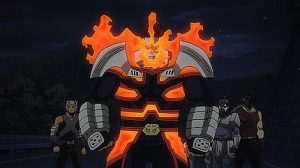 Perhaps the most interesting element of this movie’s backstory is that it incorporates what Horikoshi says was the manga’s planned original ending. That stamps it as canon all the more, and also suggests that he’ll go in a different direction with the actual manga ending. Whether that’s a good thing or bad thing is in the eye of the beholder, but for me the movie ending worked pretty well in its own right. As to whether I’m glad or sorry he fired that bullet here instead of saving it, ask me when the series proper comes to an end.
Perhaps the most interesting element of this movie’s backstory is that it incorporates what Horikoshi says was the manga’s planned original ending. That stamps it as canon all the more, and also suggests that he’ll go in a different direction with the actual manga ending. Whether that’s a good thing or bad thing is in the eye of the beholder, but for me the movie ending worked pretty well in its own right. As to whether I’m glad or sorry he fired that bullet here instead of saving it, ask me when the series proper comes to an end.
 The scenario here has the 20 kids from Class 1-A on a practicum assignment on remote Nabu (which really should be “Naboo” if we’re playing along with the joke) Island. As a work experience program this actually ranks as perhaps the most feasible BnHA has thrown at us – this is a quiet and generally ignored place, with no serious crime for decades. As a place for the hero students to get unsupervised real-world experience helping people it makes loads of sense. Most of the job consists of finding lost children, re-charging batteries, or other similarly mundane tasks – but that’s rather the point. If you want hero students to get experience dealing with the outside world without anyone holding their hands, Nabu is ideal (or so it seemed).
The scenario here has the 20 kids from Class 1-A on a practicum assignment on remote Nabu (which really should be “Naboo” if we’re playing along with the joke) Island. As a work experience program this actually ranks as perhaps the most feasible BnHA has thrown at us – this is a quiet and generally ignored place, with no serious crime for decades. As a place for the hero students to get unsupervised real-world experience helping people it makes loads of sense. Most of the job consists of finding lost children, re-charging batteries, or other similarly mundane tasks – but that’s rather the point. If you want hero students to get experience dealing with the outside world without anyone holding their hands, Nabu is ideal (or so it seemed).
 The other thing I like about this setup is that it provides a showcase for the students to have the stage more or less to themselves. The pro heroes are fine – some among the best characters in the cast – but ultimately it’s these kids who are the core of HeroAca’s story. And they end up being severely put to the test here, because of a hero named Nine (Inoue Yoshio, though when I saw this movie in the theatre I was sure it was Sakurai Takahiro). He has a familiar dream – a world where power is everything, and the strongly quirked naturally rule over the weak. And he has a familiar quirk, too – he can steal the quirks of others.
The other thing I like about this setup is that it provides a showcase for the students to have the stage more or less to themselves. The pro heroes are fine – some among the best characters in the cast – but ultimately it’s these kids who are the core of HeroAca’s story. And they end up being severely put to the test here, because of a hero named Nine (Inoue Yoshio, though when I saw this movie in the theatre I was sure it was Sakurai Takahiro). He has a familiar dream – a world where power is everything, and the strongly quirked naturally rule over the weak. And he has a familiar quirk, too – he can steal the quirks of others.
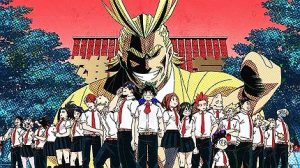 Turns out there’s a very good reason for that. Nine was part of a quirk-transfer experiment conducted by the League of Villains, and proved compatible with All For One’s quirk. There are limits, though. He can only steal eight quirks and use nine (which will prove a critical plot point – and a major manga spoiler). And when he uses his stolen quirks too much his cells degenerate. The solution? To steal the quirk from someone who possesses cellular regeneration. That’s a rarity, though, and when he finds a man who fits, it turns out that his ability only works on those with blood type A (Nine is B). But he also finds information on the man’s children – who live on Nabu Island.
Turns out there’s a very good reason for that. Nine was part of a quirk-transfer experiment conducted by the League of Villains, and proved compatible with All For One’s quirk. There are limits, though. He can only steal eight quirks and use nine (which will prove a critical plot point – and a major manga spoiler). And when he uses his stolen quirks too much his cells degenerate. The solution? To steal the quirk from someone who possesses cellular regeneration. That’s a rarity, though, and when he finds a man who fits, it turns out that his ability only works on those with blood type A (Nine is B). But he also finds information on the man’s children – who live on Nabu Island.
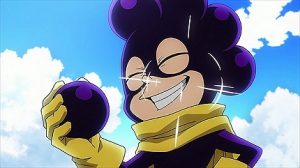 Nine and his henchlings descend on Nabu, unaware that the Yuuei students are in residence. Those underlings are the beastman Chimera (Takeuchi Shunsuke), Slice (Imada Mio), and Mummy (Toriumi Kousuke). All of them – especially Chimera – are extremely strong in their own right (though Mummy gets captured pretty early on). And of course Nine is a true monster with as many as nine (though seemingly less) battle quirks at his disposal – until he reaches his limit, of course. That’s where Katsuma (Tersaki Yuka), comes in. He’s the little boy who possesses the quirk Nine needs, and lives alone (because, anime) on the island with his hero-skeptic sister Mahoro (Kurosawa Tomoyo).
Nine and his henchlings descend on Nabu, unaware that the Yuuei students are in residence. Those underlings are the beastman Chimera (Takeuchi Shunsuke), Slice (Imada Mio), and Mummy (Toriumi Kousuke). All of them – especially Chimera – are extremely strong in their own right (though Mummy gets captured pretty early on). And of course Nine is a true monster with as many as nine (though seemingly less) battle quirks at his disposal – until he reaches his limit, of course. That’s where Katsuma (Tersaki Yuka), comes in. He’s the little boy who possesses the quirk Nine needs, and lives alone (because, anime) on the island with his hero-skeptic sister Mahoro (Kurosawa Tomoyo).
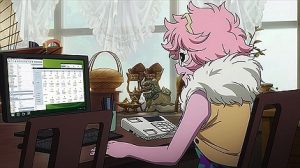 It’s never less than clear that Nine is a tool of Shigaraki even if he doesn’t realize it, but he nevertheless makes a very appealing (and threatening) mid-boss. It may be the best compliment I can pay “Rising” to say that I could see it as a regular arc in the manga/TV series. It’s also fun to see the students slot into their natural roles here. Bakugo rebels at the menial work of helping muggles, as Deku winds up bonding with the kids (especially hero-crazy Katsuma). And when the battles start, they provide a useful sorting hat to see what the real pecking order for 1-A is both narratively and in terms of pure strength.
It’s never less than clear that Nine is a tool of Shigaraki even if he doesn’t realize it, but he nevertheless makes a very appealing (and threatening) mid-boss. It may be the best compliment I can pay “Rising” to say that I could see it as a regular arc in the manga/TV series. It’s also fun to see the students slot into their natural roles here. Bakugo rebels at the menial work of helping muggles, as Deku winds up bonding with the kids (especially hero-crazy Katsuma). And when the battles start, they provide a useful sorting hat to see what the real pecking order for 1-A is both narratively and in terms of pure strength.
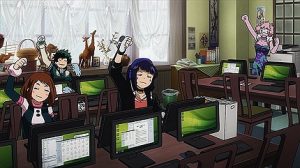 To that end, it’s Kacchan and Deku who wind up facing off against Nine. The next tier, led by Shouto and Iida, wind up against the strongest disciple Chimera. The lower castes wind up being shock troops to exhaust Nine’s resources before the real attacks, while those with rescue-oriented quirks head up evacuation and protecting the siblings. During their first encounter Nine quite correctly deduces that One for All is worth stealing, but realizes he can’t – this is arguably the most critical scene in the movie in the long run. Izuku and Kacchan are hurt quite badly in that fight, but fortunately Katsuma is able to use his ability to speed their recovery. And they’re certainly going to be needed.
To that end, it’s Kacchan and Deku who wind up facing off against Nine. The next tier, led by Shouto and Iida, wind up against the strongest disciple Chimera. The lower castes wind up being shock troops to exhaust Nine’s resources before the real attacks, while those with rescue-oriented quirks head up evacuation and protecting the siblings. During their first encounter Nine quite correctly deduces that One for All is worth stealing, but realizes he can’t – this is arguably the most critical scene in the movie in the long run. Izuku and Kacchan are hurt quite badly in that fight, but fortunately Katsuma is able to use his ability to speed their recovery. And they’re certainly going to be needed.
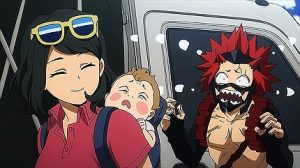 Shouto (the clear #3 among the students in the pecking order, if we’re honest) does get a very cool moment in putting Chimera in the deep freeze. But really, it all comes down to that ending. To wit (stop reading if you don’t want to be spoiled) Deku shares One For All with Bakugo, on the grounds that it’s the only way they can defeat Nine. Bakugo sees his powers multiply, and Deku fights (as All Might has been) with the embers (it all gets a bit too Super-Saiyan, but that’s all right). Symbolically this is a big moment, obviously. And it more or less makes sense to me – I could very easily see Deku making this choice in this moment.
Shouto (the clear #3 among the students in the pecking order, if we’re honest) does get a very cool moment in putting Chimera in the deep freeze. But really, it all comes down to that ending. To wit (stop reading if you don’t want to be spoiled) Deku shares One For All with Bakugo, on the grounds that it’s the only way they can defeat Nine. Bakugo sees his powers multiply, and Deku fights (as All Might has been) with the embers (it all gets a bit too Super-Saiyan, but that’s all right). Symbolically this is a big moment, obviously. And it more or less makes sense to me – I could very easily see Deku making this choice in this moment.
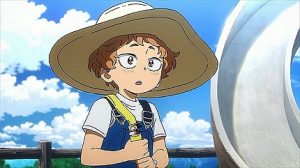 It’s what happens afterwards which is perhaps a bit more problematical. Izuku is truly selfless here, fully expecting that in doing this he will lose One For All – and his dream – forever. When the pros arrive to clean up, he tearfully apologizes to All Might, who forgives him likewise believing this is what’s happened. But in fact One For All remains inside Deku. All Might theorizes that perhaps Kacchan losing consciousness before the transfer completed was the reason, but his second notion – that it was the will of the previous holders to reward Izuku for his selfless heroism – seems more likely. And it certainly implies a more active role in the present for those holders than we previously had reason to suspect.
It’s what happens afterwards which is perhaps a bit more problematical. Izuku is truly selfless here, fully expecting that in doing this he will lose One For All – and his dream – forever. When the pros arrive to clean up, he tearfully apologizes to All Might, who forgives him likewise believing this is what’s happened. But in fact One For All remains inside Deku. All Might theorizes that perhaps Kacchan losing consciousness before the transfer completed was the reason, but his second notion – that it was the will of the previous holders to reward Izuku for his selfless heroism – seems more likely. And it certainly implies a more active role in the present for those holders than we previously had reason to suspect.
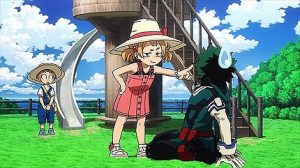 The larger themes of HeroAca certainly loom large here too. The fundamental argument over what sort of world this is going to be – what role quirks should play in who holds power – is of course at the heart of it. There’s also the matter of heroism, and how Deku and Kacchan are very different. But it seems as if Kacchan is acknowledging Deku’s dream – to be a hero who focuses on helping people rather than on beating up villains – to be just as valid as his own. We’ve never really seen these two work together so closely, but Horikoshi has always made it clear that their fates were linked. It begs the question of how he’s going to link them in the series’ actual finale, once we get that far.
The larger themes of HeroAca certainly loom large here too. The fundamental argument over what sort of world this is going to be – what role quirks should play in who holds power – is of course at the heart of it. There’s also the matter of heroism, and how Deku and Kacchan are very different. But it seems as if Kacchan is acknowledging Deku’s dream – to be a hero who focuses on helping people rather than on beating up villains – to be just as valid as his own. We’ve never really seen these two work together so closely, but Horikoshi has always made it clear that their fates were linked. It begs the question of how he’s going to link them in the series’ actual finale, once we get that far.
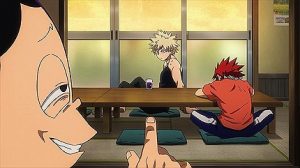 As a movie, I think Heroes: Rising works very well. The action never drags, the characters never behave off-model, and as you’d expect Bones does a superb job delivering lots of sakuga for the (many) battles. It slots nicely into the series canon (sometime during Season 4), and raises some interesting questions Horikoshi will have to answer later. I don’t think fans can ask for a lot more than that from a movie, or indeed from an adaptation – Bones has delivered the goods for Boku no Hero Academia right from the beginning, and still is.
As a movie, I think Heroes: Rising works very well. The action never drags, the characters never behave off-model, and as you’d expect Bones does a superb job delivering lots of sakuga for the (many) battles. It slots nicely into the series canon (sometime during Season 4), and raises some interesting questions Horikoshi will have to answer later. I don’t think fans can ask for a lot more than that from a movie, or indeed from an adaptation – Bones has delivered the goods for Boku no Hero Academia right from the beginning, and still is.


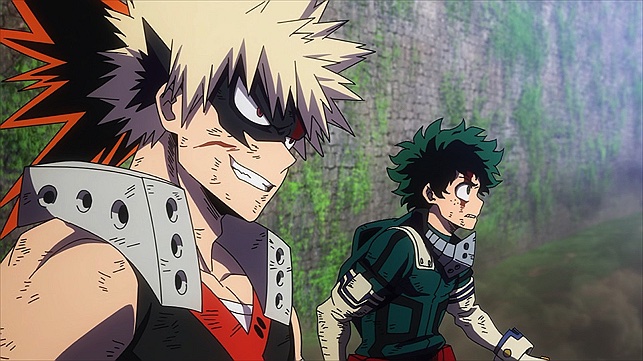

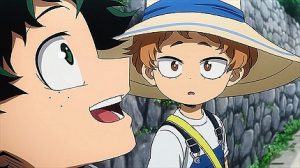
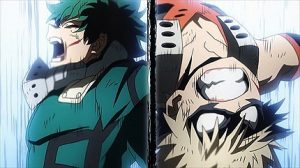
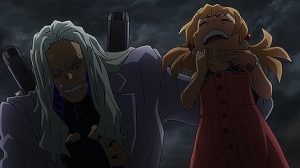
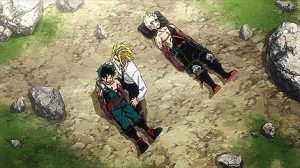
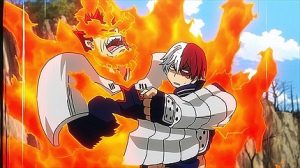
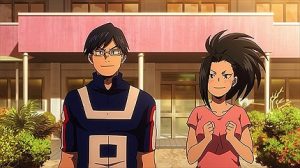

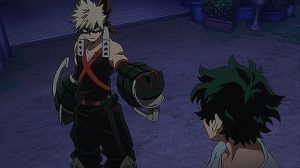

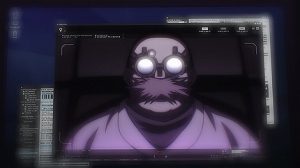
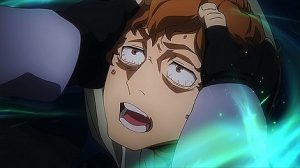
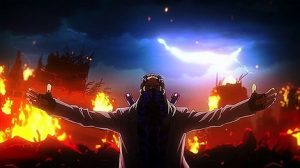
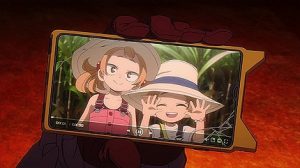
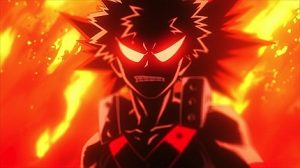
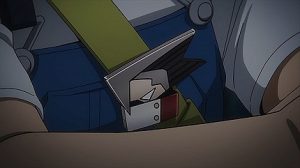
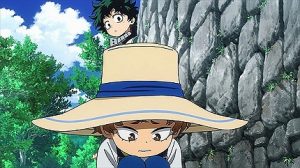
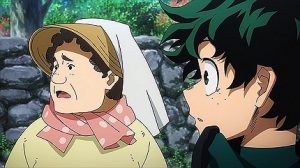
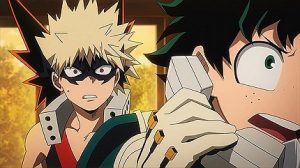
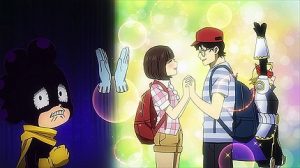
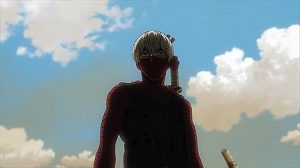


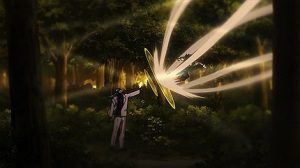
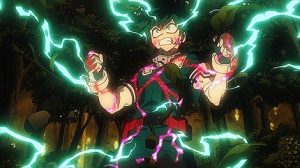
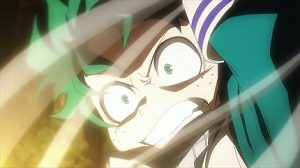
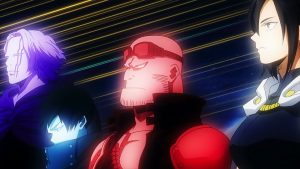
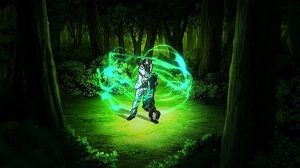
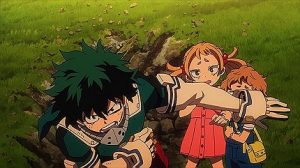
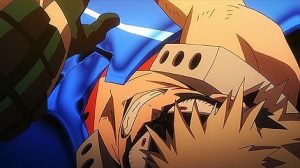
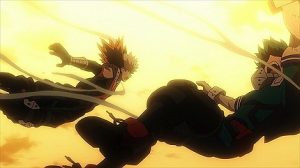
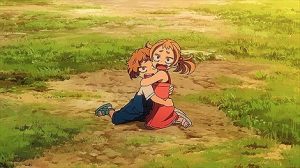
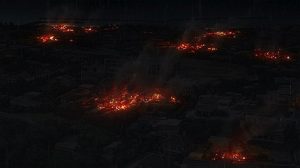
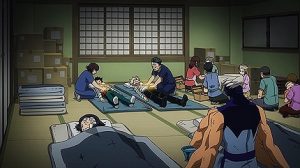
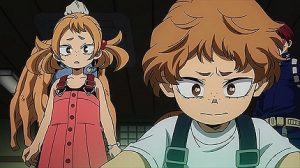
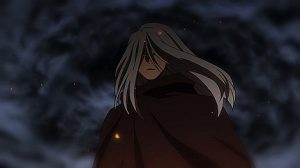


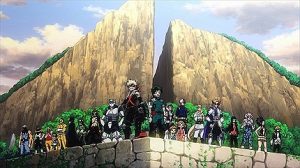
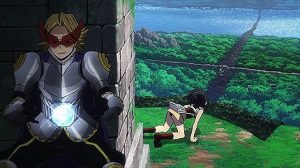
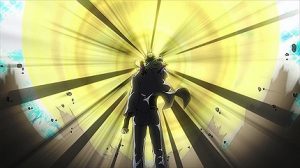
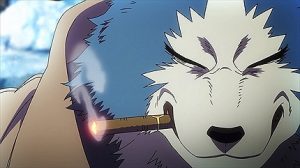
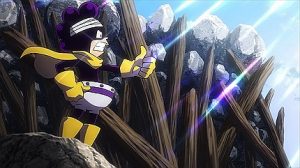
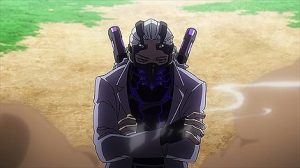

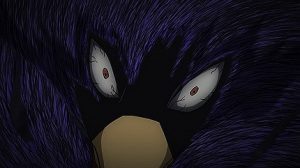
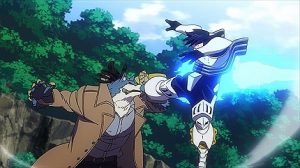
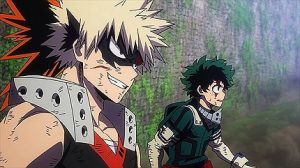

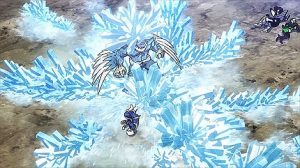

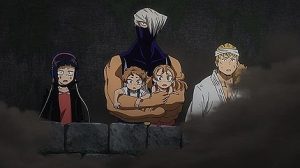
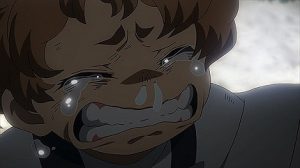
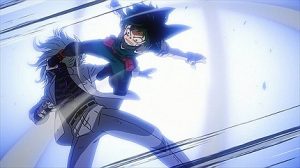
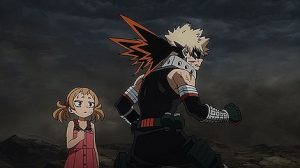

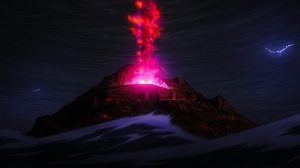
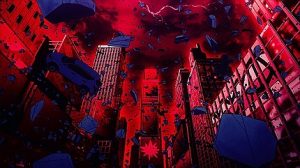
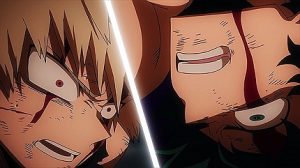
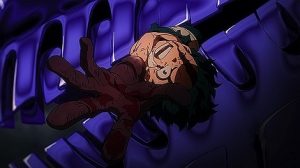
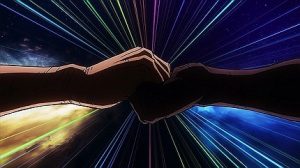
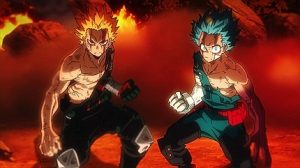
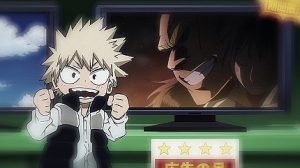


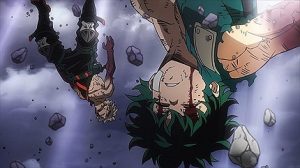
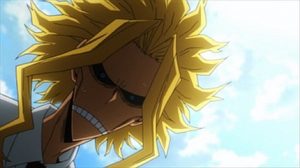
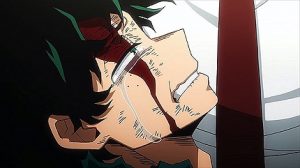
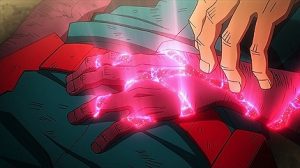
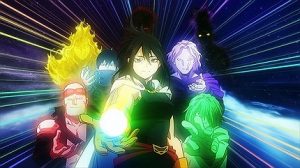
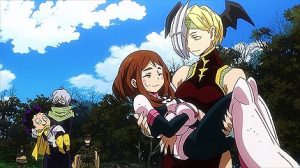
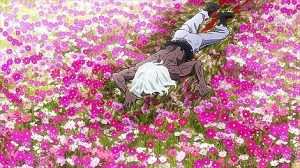


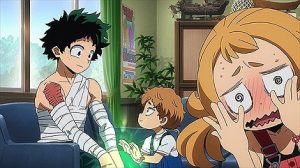
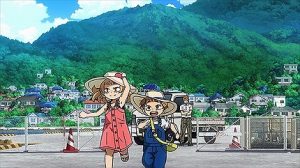
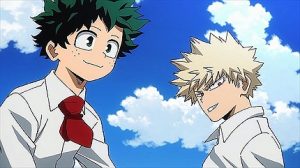
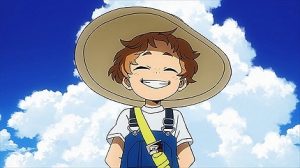
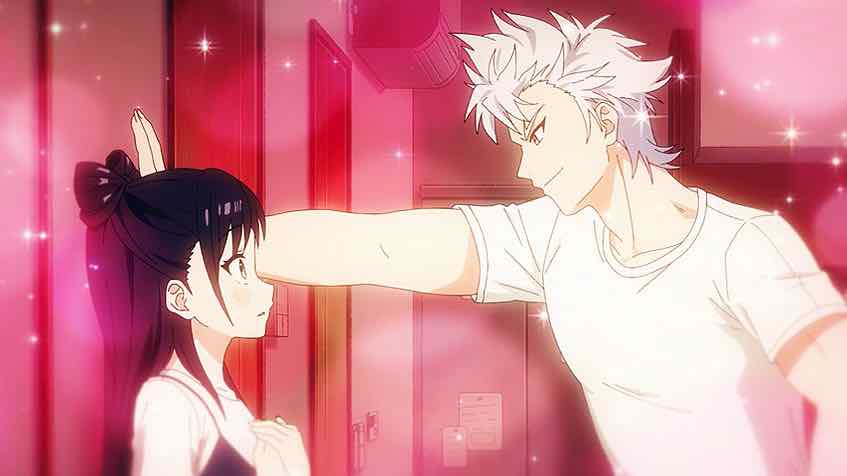
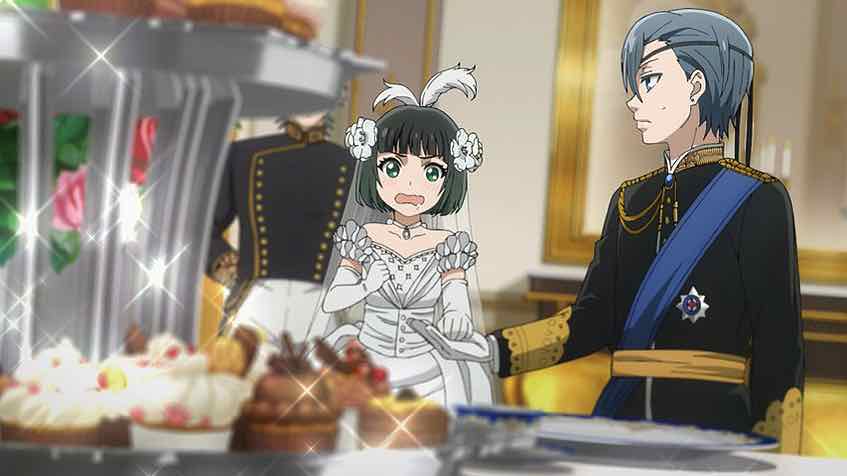
dc22
July 25, 2020 at 10:40 pmThe deus ex machina at the end and back to status quo really ruined this movie for me.
Kurik
July 27, 2020 at 5:47 amAgreed and don’t like the argument that kacchan forgot what happened either. Felt hollow. Just say one for all is sentient and decided to stay with deku and make it so it was a one time thing that can never happen again. Villian was a bit one note but it was overall watchable. If i was to grade it i would give it a 6.5/10. Surprised shouto is pegged as less powerful than kacchan. I would put them them all on the same level for now.
Guardian Enzo
July 27, 2020 at 6:51 amNarrative pecking order.
Yann
July 27, 2020 at 8:33 amYeah… That was weird. Always thought Shouto was more powerful than Bakugo.
This was fun… Although that ending felt like a cheat.
Thanks for the heads up Enzo! Didn’t know this was out!
Guardian Enzo
July 27, 2020 at 9:55 amMaybe that’s why Horikoshi decided not to use it as the actual manga ending.
I think it can debated who’s the strongest between Deku, Kacchan, and Shouto (and I think Tokoyami is in the mix too, when he figures out how to use his quirk to its fullest). But in terms of narrative importance I think the order is pretty clear.
Snowball
July 25, 2020 at 11:42 pmMy only gripe is that the main villain feels like your standard villain in a shounen jump film, but overall, it was enjoyable. Shouto’s fight was really cool and I would like to see more of him making battle plans and being on the edge of life and death, like PLUS ULTRA!!!
Elia Notari
July 28, 2020 at 3:59 amJust to be clear: this happen(ed?) a couple of story arcs after the end of season 4, so it’s not set during that time
Wumulec
July 31, 2020 at 8:46 amI loved the first movie dearly. It gave us much-needed insight into All Might’s youth while convincing many (me included) that our man is definitely not straight.
I feel thoroughly meh’d by this one. It is beautiful to look at, yes. The visuals pop; whole last fifteen minutes of the movie are high octane animation at its finest. But when you strip the fireworks away, what does remain? A bland story put together from recycled material. Some kindergartener needs to be saved/convinced that heroes are indeed valid (again.) What is it with kindergarteners? Why can’t it once be about a bitter 45 yo who lost all their loved ones because the heroes came too late? Why does the villain have to be a puppet in Shigaraki’s (and by extension, AFo’s) palm? It’s not like Potato Face is the only criminal kingpin in all Japan. The tropical island was just a sterile backdrop; none of the specifics of the region made it into the plot. The cast is huge and some of those second and third-tierers could really use the screen time. I’d love to get to know the less fleshed-out characters from 1-A better. Instead, we get to see how different Izuku nad Bakugo are in their approach to this hero business (again). And when their relationship finally levels up, the Status Quo is God trope promptly nips all the possible consequences in the bud. I knew that neither is Deku going to kick the bucket here (because the manga ), nor is his power going to stay with Kacchan (because manga), so this supposedly huge sacrifice on his part rung completely hollow. I felt cheated. It was as if the movie was trying to collect emotional dividends from its audience which it haven’t earned.